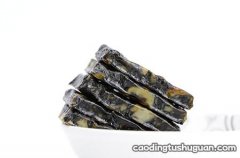英语宾格用法 1.人称代词的主格作主语,宾格作动词的宾语和介词的宾语 。 例:
They have English lessons on Saturday. 他们星期六上英语课 。
The teacher asked them to stay in the classroom. 老师叫他们呆在教室里 。
We are listening to them. 我们在听他们说话 。
2.人称代词作表语时,一般用宾格,特别是在日常会话中 。 例:
“Who is knocking at the door? ” “It's me. ”/ "It's him"/ "it's her" “谁在敲门?”“是我 。 ”
在很正式的英语中也用主格,可以说:It is I.
只有一个词的句子用宾格:
“Who wants to try?” “ Me.” “谁想试一试?”“我 。 ”
在“it + be + 代词 + 定语从句”结构中,用宾格是随便的说法,用主格是非常正式的说法 。 例:
It was me/ I who broke the window. 是我打破了玻璃窗 。
为了避免太正式或太随便,我们可以用别的句式来表达 。 例:
I was the one / person who broke the window.
3.人称代词处在动词之前,会影响选用主格还是用宾格 。 例如 but和except 既可作介词也可作连词,因此在but或except之后,用主格还是用宾格就要慎重 。 例:
No one but / except I read the book.
No one read the book but / except me / I. (me 比I 更常见)只有我读过这本书 。
英语宾格怎么用? 宾格做宾语放在动词或介词后如He often helps me.
This book is for me.
英语宾格一般怎么用 英语中宾格用于动词或介词之后 。
如
I often help him .
Don't laugh at him .
宾格的用法 .人称代词的主格作主语,宾格作动词的宾语和介词的宾语 。 例: They have English lessons on Saturday. 他们星期六上英语课 。 The teacher asked them to stay in the classroom. 老师叫他们呆在教室里 。 We are listening to them. 我们在听他们说话 。 2.人称代词作表语时,一般用宾格,特别是在日常会话中 。 例: “Who is knocking at the door? ”“It's me. ”/ "It's him"/ "it's her" “谁在敲门?”“是我 。 ” 在很正式的英语中也用主格,可以说:It is I. 只有一个词的句子用宾格: “Who wants to try?”“ Me.” “谁想试一试?”“我 。 ” 在“it + be + 代词 + 定语从句”结构中,用宾格是随便的说法,用主格是非常正式的说法 。 例: It was me/ I who broke the window. 是我打破了玻璃窗 。 为了避免太正式或太随便,我们可以用别的句式来表达 。 例: I was the one / person who broke the window. 3.人称代词处在动词之前,会影响选用主格还是用宾格 。 例如 but和except 既可作介词也可作连词,因此在but或except之后,用主格还是用宾格就要慎重 。 例: No one but / except I read the book. No one read the book but / except me / I. (me 比I 更常见)只有我读过这本书 。 代词宾格的习惯用法——一道高考题的启示 (1)—Susan , go and join your sister cleaning the yard. —Why ____ ?John is sitting there doing nothing. A.him B.he C.I D.me 所给答案为D 。 在这儿用的是代词宾格 , 那么什么情况下使用代词宾格呢? 众所周知 , 主格通常作主语 , 宾格通常作宾格 。 然而在有些情况下按照规则该用主格的地方却习惯上使用宾格 。 一、在日常会话中 , 当人称代词作表语时 , 习惯用代词宾格 。 例如: (2)—Who is there? —It's me. (3)—Who is it? —It's me /him /her /us /them. 二、在日常口语中 , 当人称代词孤立地用于不带谓语的句中作主语时 , 习惯用代词宾格 。 例如: (4)—Who sent this letter? —Me. (5)—Who can drive a car? —Me. (6)—I'm in love. —Me too. (7)—Who wantsaride on my bike? —Me!/Notme! (8)—I'm glad it's Friday. —Me too!/Us too! (9)—Idon'twantto go to apolitical meeting. —Nor me!/Me neither! 三、在日常口语中 , 当人称代词用于带有强烈感情色彩的句中作主语 , 其后不带谓语 , 习惯用代词宾格 。 (10)—You ought to do it. —What?me! (11)—You can tell him. —Me tellhim?Not likely! (12)Me married?I don'tthink. 四、在比较随便的谈话中 , 人称代词作为一个并列成份作主语时 , 习惯用代词宾格 。 例如: (13)Someone will have to answer forit.Notyou or me. (14)You and me mustgetto- gether. (15)Lily and me have made up our minds. 五、在表示补充说明或意义转折的句子中 , 主语用代词宾格 。 例如: (16)I was hungry and tired and me withoutacenttomy name. (17)We had to wade across the street—and me in my bestsuit. 六、人称代词前有形容词修饰时 , 习惯用代词宾语 。 例如: (18)Poor little me always gets the blame. (19)Tall and strong him broke the record for high-jump.
推荐阅读
- 学习知识|端怎么读,端字的读音是什么
- 学习知识|升字五笔怎么打,今字五笔怎么打
- 学习知识|州字五笔怎么打,用五笔怎么打
- 学习知识|电表上的数字怎么看,电表怎么看数据
- 学习知识|戒的五笔怎么打,邋的五笔怎么打
- 学习知识|羽字五笔怎么打,羽字的五笔如何拆分
- 学习知识|怎么打开运行窗口,怎么把文件图标还原成白板
- 学习知识|怎么打开位置服务,怎么开启定位位置
- 学习知识|怎么练习写字
- 学习知识|小学一年级拼音怎么教,有什么办法教一年级拼音











